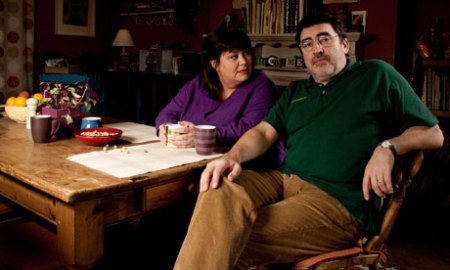M. V. Carey was kind to me when I was a boy
(this was written in 2008 for an old blog, but I wanted to preserve it here)
Cleaning up the basement, I just stumbled across a letter written to me many, many years ago by author M.V. (Mary) Carey.
As a kid, I was a fanatical fan of several series (the continuity of series books always greatly appealed to me): Notably Lloyd Alexander’s High King (or Black Cauldron) series, Hugh Lofting’s Dr. Doolittle books, C.S. Lewis’s The Chronicles of Narnia, and Willard Price’s “Adventure” series. While I could never get into the Hardy Boys, I was a monster fan of the Three Investigators books, created in 1964 by Robert Arthur, but primarily written during my childhood by Carey.

When I was in fourth or fifth grade, my class was given the assignment of writing a letter to our favorite authors. Most kids wrote to Judy Blume or Beverly Cleary, but I wrote a heartfelt letter to Carey, explaining that I loved to write and draw, and that I one day hoped to write and draw comic books and maybe even write real books.

Virtually every kid in the class received very nice form letters from the authors they chose, but I received a lovely typed response directly from Ms. Carey, with specific advice on the craft of writing, and inquiries as to my hobbies and about the town in which I lived. Over the course of a couple of years, we exchanged three or four more letters, and each time she wrote to me without condescension, in a leisurely manner, sharing her impressions of the places I lived based on their names (we moved from Iowa to Texas during this period), and wishing me success with the detective agency I started with my friend Troy Petrick (C.L.O.Y. Investigations).

Over the years I’d occasionally stumble across one of Carey’s letters, and each time I’d make sure I tucked the letters away in some corner for preservation. Finding this letter tonight spurred me to search for information on her life after she stopped writing the Three Investigators books (her last book was published in 1987), and I found what I was looking for:
MARY VIRGINIA CAREY
1925 – 1994

Personal: Born May 19, 1925, in New Brighton, England; brought to the United States in 1925, naturalized citizen in 1955; daughter of John Cornelius (an engineer) and Mary Alice (Hughes) Carey. Home address in 1993 was 3748 Birch St., Ventura, CA.
The entire entry can be found here: http://www.threeinvestigatorsbooks.com/MVCarey.html
Along with much biographical information, the entry includes this lovely quotation from Carey:
“Young people ask why I became a writer, as if it were something I decided. I didn’t decide; it grew on me like ivy. When I was a child I liked to read to my friends, or to tell them stories. When I grew up I had several false starts before I found a job on a magazine and discovered that people who read and write are more fun than people who don’t. I first wrote for profit at the Disney Studio. I worked on the Mickey Mouse Club magazine there. Suddenly I felt that I was ten again, sitting on the front porch telling stories to the other kids. Now that I am a free-lance writer, the sensation of reliving younger days is even stronger. I remember how it was when my brothers and I were small. We had no money because of that thing called a depression, but we had freedom. If there were wicked people on Long Island in the 1930’s – people who might harm kids – we did not know of it. On summer mornings my mother could open the door and send us out to wander through the neighborhood and she did not worry. So long as we came back in time for lunch – and relatively clean and undamaged – everything was fine. We explored all empty houses, and all empty houses were considered haunted. We went out on the sound in a tiny boat which my second brother had salvaged from the beach after a storm. We had clubs with secret passwords. We watched the older people of the community come and go and I think we knew quite a bit about what they were up to – probably including things we were not supposed to know.”
“And we read. We read everything we were supposed to read, and much that we weren’t supposed to know about. We fished pulp magazines out of the neighbor’s trash and learned all about Dr. Fu Manchu and Tarzan of the Apes and other super heroes. We also plowed through Dickens and Jules Verne and the Saturday Evening Post and Collier’s and everything the librarian would let us carry home from the library. Today all of the reading and the roaming stands me in good stead. So does my habit of being not especially practical or brisk. People ask if I work for a certain number of hours each day. I admire people who do, but I must admit that I don’t. Some days it seems more important to wander and watch, or to read. There is only one brisk rule that I do observe; if I plan to write today, I do not leave the house until I’ve written. I know that once I go out, I will stay out until dark, and then I will come trailing home, tired and probably hungry. I will have lost the day.”
It’s now been over ten years since Ms. Carey passed away, and I regret not being able to thank her for her kindness, and for the small part she played in shaping my own life.







































